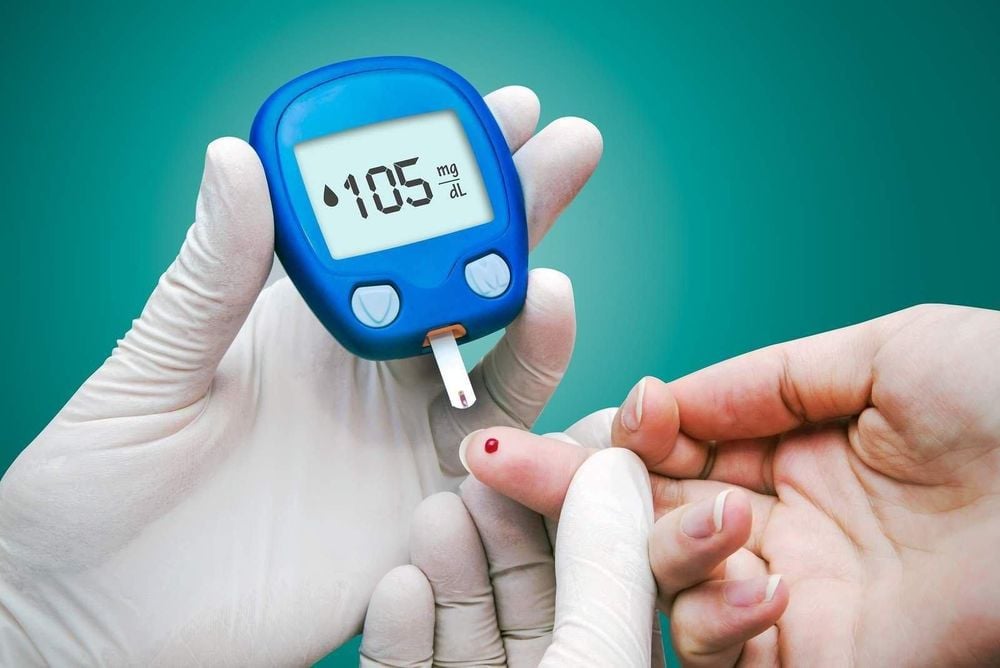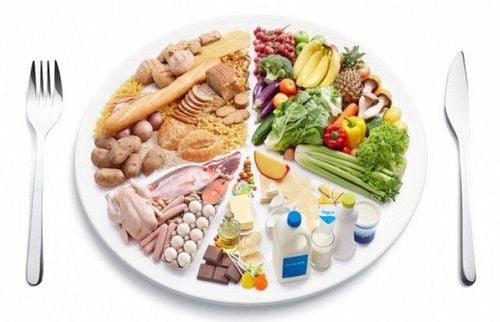This is an automatically translated article.
Along with hypertension, diabetes, cancer, overweight and obesity is currently considered a new "pandemic" of the 21st century because of its rapid increase and serious consequences on health and the burden of disease it causes.
1. What is overweight and obesity?
According to the World Health Organization, overweight and obesity means excessive and abnormal accumulation of fat in one area of the body or the whole body, causing many health risks. In general, overweight and obesity represent a body weight higher than the norm in a healthy person. Obesity is a chronic disease caused by an excess of body fat. There is always a certain amount of fat in our bodies and this fat is needed to store energy, retain heat, absorb shocks and perform other functions.
Overweight and obesity are classified by body mass index (BMI). Body mass index is calculated based on height and body weight. Body mass index (BMI) will be calculated by the formula: 1 person's body weight (in kilograms) divided by the square of height (in meters). Since BMI describes the relationship between body weight and height, it is strongly related to the total amount of body fat distributed in adults.
According to the classification of the World Health Organization, an adult, excluding pregnant people, if a BMI is between 25 - 29.9 is considered overweight, and an adult has a BMI > = 30 is considered obese. The most noticeable sign of overweight and obesity is an increase in body weight and fat accumulation in some special parts of the body such as abdomen, thighs, waist, even in the chest.
2. Causes of overweight and obesity

Thừa cân béo phì thường do sự mất cân bằng giữa năng lượng ăn vào và năng lượng tiêu hao
Causes of overweight and obesity are:
An imbalance between energy intake and energy expenditure. Dietary energy intake exceeds the body's energy needs, so energy is redundant and converted to fat stored in organs and organizations Genetic factors: There are people who carry certain genes in the body. gene groups such as the gene group that stimulates appetite, the gene group related to energy expenditure, the gene group that regulates metabolism, the gene group related to the differentiation and development of fat cells. In the family, if one parent or even both are obese, the risk of children being overweight is very high. People who are overweight or obese due to genetic factors have a slow metabolic rate, which is difficult to improve. Thyroid cartilage: is a condition in which the thyroid gland does not produce enough of the necessary hormones for the body. The lack of hormones causes the metabolism to slow down, which means that the amount of fat is not burned, which is the cause of weight gain. Lack of sleep: According to research, if you regularly lack of sleep for 30 minutes a day, your risk of overweight and obesity increases by 17%. When you don't get enough sleep, the amount of ghrelin will increase, making you often feel hungry, craving foods high in sugar. Over time, it will lead to uncontrolled appetite, which is the cause of overweight and obesity.
People at high risk of being overweight and obese include:
People who have a habit of eating fast food, high-energy foods, eating high fat, eating a lot of fried and fried foods, eating less vegetables, drinking a lot of soft drinks , alcohol... Sedentary people, middle-aged people, postpartum women, many obese people in the family, urban residents. A sedentary office environment, sedentary or lazy to exercise is also the cause of obesity. People who are physically active often eat foods rich in energy, when they change their lifestyle, their activity decreases, but they still keep the habit of eating a lot, so they become obese...
3. Consequences of overweight and obesity

Người thừa cân béo phì có thể bị ảnh hưởng nặng nề đến cảm giác, tâm lý do ngoại hình quá khổ
Psychological effects from oversized appearance Being overweight or obese causes the body to become oversized, so it causes feelings of inferiority and stress for overweight or obese people themselves. Overweight and obese people often lose confidence in communication, are afraid to communicate and appear in front of crowds with stress, less flexibility in daily life... leading to reduced work efficiency.
Osteoarthritis People who are overweight or obese are prone to osteoarthritis, osteoporosis, constant pain due to the pressure from their body weight on bones and joints. Knee and spine joints are injured the earliest. Overweight and obese people are prone to gout.
Cardiovascular disease Overweight and obese people are often accompanied by dyslipidemia, commonly known as blood fat or high cholesterol. When high cholesterol causes atherosclerosis, high blood pressure, stroke, heart attack. On the other hand, in overweight and obese people, the heart must regularly work harder to pump blood to the body and in the long run overload the heart, so that obese people are prone to cardiovascular diseases. Currently, the death rate from cardiovascular disease is leading among the causes, in which many cases are complications of obesity.
Diabetes Obesity is closely related to type 2 diabetes because it causes insulin resistance (the hormone that regulates blood sugar and quickly puts glucose into cells for use) so it is the direct cause. type 2 diabetes in obese people.
Digestive tract diseases Caused by overweight and obesity, excess fat clings to the intestinal loops causing constipation, easy to produce hemorrhoids. The stagnation of feces and toxic wastes generated in the metabolism can lead to colon cancer. Excess fat accumulated in the liver causes fatty liver disease, if not treated promptly, it can lead to cirrhosis... Fatty metabolism disorder produces gallstones.
Memory impairment Children who are overweight and obese often have lower IQs than children of normal weight. Obese adults have a higher risk of Alzheimer's than the general population.
Respiratory disease The accumulation of too much fat in the chest, diaphragm and abdomen will cause breathing difficulties for the patient. In severe obesity, shortness of breath can cause Pickwick's syndrome with episodes of nocturnal apnea that can be fatal. In addition, the activity of the diaphragm and tracheobronchial tubes of obese people is often limited due to "fat clinging", obese people often have breathing disturbances, snoring, sleep apnea, obesity aggravates arrhythmias. breathe more.

Béo phì có liên quan mật thiết đến bệnh đái tháo đường tuýp 2
Endocrine disorders caused by overweight and obesity Obese women are often prone to menstrual disorders, polycystic ovaries, difficulty getting pregnant, and high risk of infertility. If the pregnancy is at risk of having a difficult delivery, the baby is prone to metabolic disorders. Obese men are often physiologically weak, at risk of infertility.
Obesity and cancer risk Overweight and obese people all have high blood cholesterol and high blood insulin, which increases cholesterol in immune cells, reducing the immune system's ability to kill cancer cells in body. Some studies show an association between obesity and cancer such as: esophageal cancer, rectal cancer, breast cancer, uterine cancer, hepatobiliary cancer and prostate cancer.
To reduce the risk of serious complications from being overweight or obese, doctors recommend that each person control their weight with a healthy, balanced diet combined with appropriate exercise. to improve health as well as prevent dangerous diseases caused by overweight and obesity.
Please dial HOTLINE for more information or register for an appointment HERE. Download MyVinmec app to make appointments faster and to manage your bookings easily.













